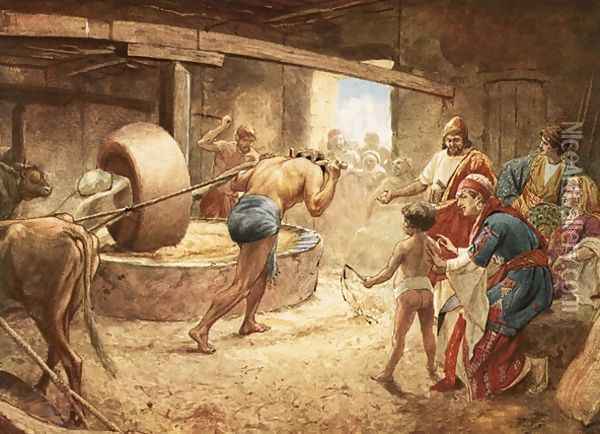This reading is based on Ecclesiastes 4 that is read in accordance with the Revived by His Word initiative of the General Conference of Seventh-day Adventists.
"Awake, O north wind, and come, O south! Blow upon my garden that its spices may flow out. Let my beloved come to his garden and eat its pleasant fruits." Verse 16
"Blow upon my garden that its spices may flow out." Could this be referring to a sort of human pheromone? Pheromones are chemical secretions (typically airborne) that emit from one organism, but affects the behaviour of another organism of the same species. Here you get a clear sense that although the chemical is carried by the wind, the one who secretes the pheromone so controls its release that is seems targeted at a selected mate.

I want to see human behaviour as a type of pheromone itself that stimulates responses from those around. Sometimes these behaviours reach the extreme level of being flirtatious. A flirtation is typically seen a signal for sexual engagement without serious commitment. But it is also practiced in marriages and is one way for a spouse to indicate to the other that he/she is in a certain mood. There is also an extent to which, outside a marriage union, we give off signals that indicate our interest to get to know another individual a bit more, but it does not reach the level of sexual engagement. Over time however, and after marriage, the sexual act may come into play. What is significant here is that this "pheromone" is CONTROLLED; it is SELECTIVELY RELEASED and pulls in SPECIFIC TARGETS. While other prospects may come, if they don't satisfy the established criteria they will not be permitted into the "garden." It behooves adult singles to behave in a manner that will attract the ideal prospect; as not all signals will attract the right person.
In another sense our behaviour will attract or repel the Holy Spirit and other heaven appointed agencies. Sometimes by our behaviour we invite demons into our lives - who may incidentally come with the wrong mate we attract and accept into our lives.
Father, I pray especially for those who are not yet married to be able to attract and accept the right person into their lives, and that by the same token make way for the indwelling of the Holy Spirit. Please strengthen the ideal marriages, and reform those that are weak we pray, in Jesus' name, amen.
To read and/or listen to Ecclesiastes 4 and to read other related blogs, please click here.




